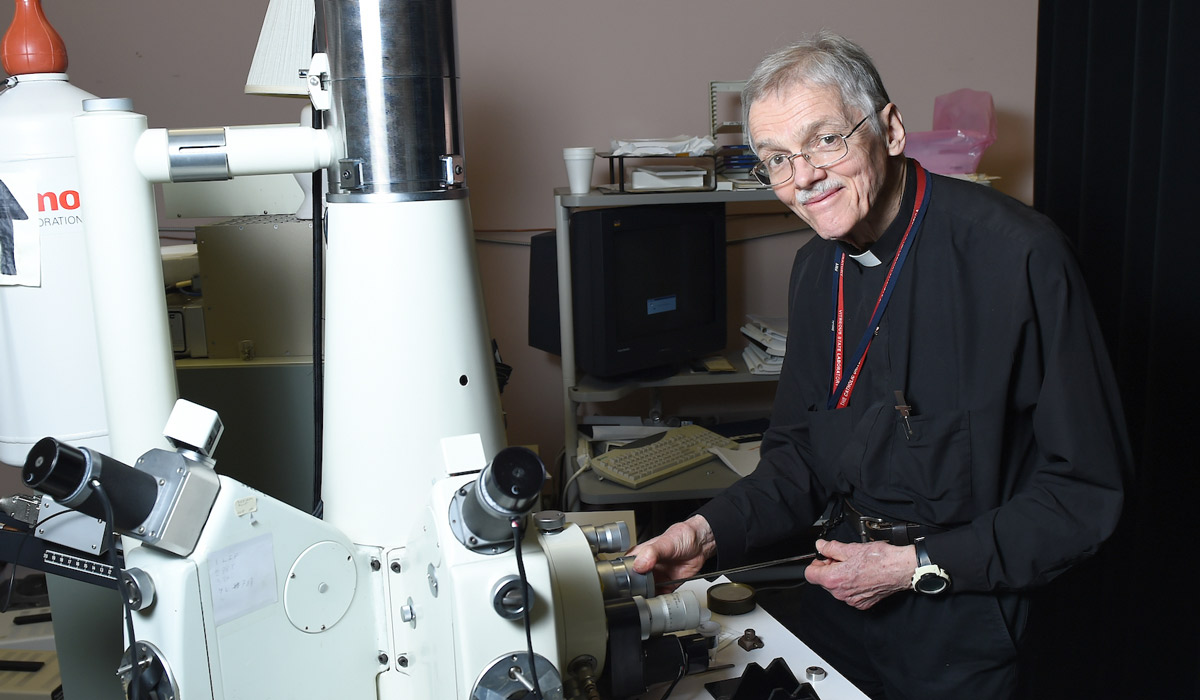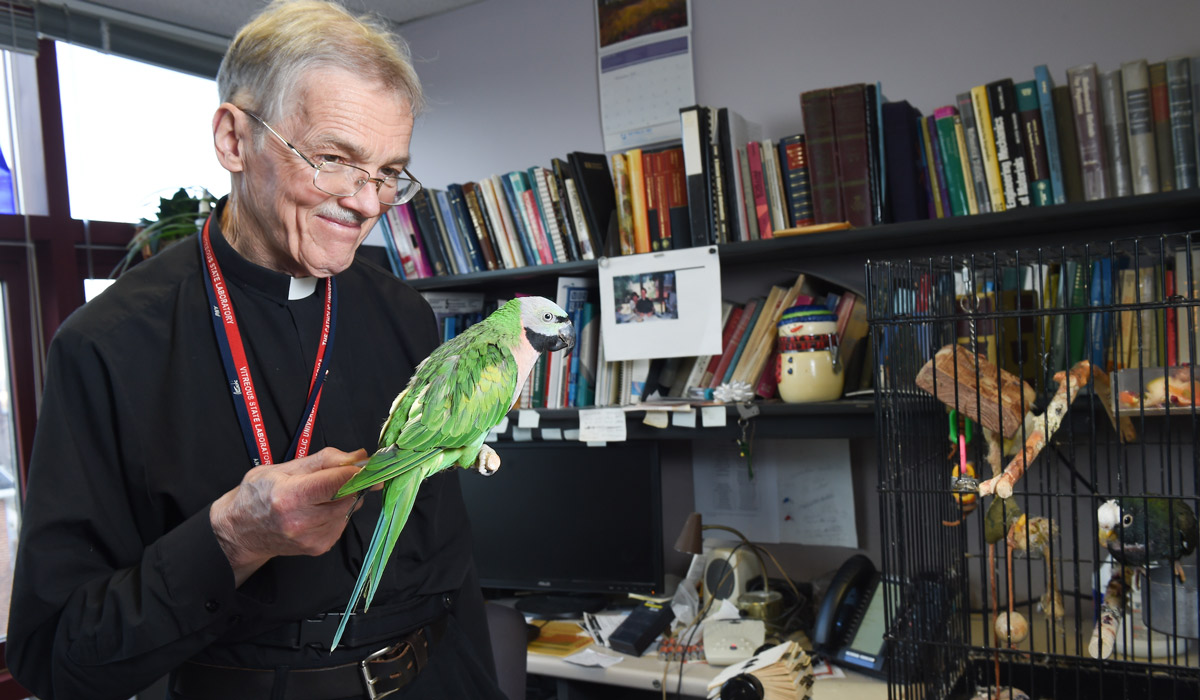

Step inside the office of Rev. Andrew Buechele, Sch. P., a scientist in the Vitreous State Laboratory (VSL), and you will see books and papers reflecting his long research career. Father Buechele, a Piarist, has been working and teaching in the lab for more than 30 years, but his association with Catholic University goes back even further. As a young seminarian, Father Buechele studied philosophy and earned his bachelor’s degree in physics from the University in 1967.
“After my ordination, I taught at a high school in Buffalo, N.Y., for five years, and started doing a little part-time research in nuclear physics,” Father Buechele said. “I got my master’s degree and was anxious to pursue a doctorate, so I got permission from my superiors and went into material science at Cornell University.”
After earning his doctorate in 1982, and spending about a year and a half working at Covenant House in Manhattan the priest found himself back in Washington, D.C., splitting his time between teaching, research, and working as a scientist at the National Bureau of Standards and Technology.
“When I came back after 14 years, Washington had changed quite a bit,” he said. “The campus has changed a great deal in the 34 years I’ve been teaching here.”
“Our ability to think and understand is a clear sign of God’s gift to us of being made ‘in His likeness’.”
In VSL, Father Buechele has spent his career researching the unique properties and characteristics of glass. Since 2014, he has been working alongside VSL scientist Isabelle Muller, collaborating with personnel at the Library of Congress and George Washington University on a project aimed at improving preservation methods for priceless glass flutes. The flutes, which were fabricated by the Parisian artisan Claude Laurent, date back to 1804. They are part of the Library of Congress’s Dayton C. Miller collection.
Under close scrutiny of Library of Congress personnel, Father Buechele obtained tiny chips of glass from two of the flutes that exhibited signs of severe deterioration. He analyzed the chips at VSL using scanning electron microscopy and other methods. Though an 1806 patent originally described the flutes as being made of “crystal,” or leaded glass, Father Buechele discovered the chips he obtained were actually made of potash glass containing rather high levels of potassium.
“Leaded crystal glasses are generally pretty resistant to attack by water, but these high-potassium glasses are not,” he said. “Over time, the flutes have been attacked by moisture in the atmosphere and in the breaths of the flautists by whom they have been played.”
Thanks in part to Father Buechele’s research findings, archivists at the Library of Congress have already taken steps to improve their storage facilities, using precise humidity levels believed to be best for the health of the flutes. As their project continues, Father Buechele and his team hope to learn more about the processes of degradation and their variations with glass composition and storage environments. These finding could be helpful in preserving a variety of glass heritage objects.
For Father Buechele, this work of scientific discovery is closely linked to his own faith. He belongs to a teaching order that was founded in the early 17th century, around the time of the great Italian thinker Galileo Galilei — often considered the father of modern science.
“St. Joseph Calasanz, our founder, lived at the same time as Galileo, and as our work spread through schools set up in Florence, some of our priests worked with him — one of them worked for several years as his secretary and another priest took dictation for Galileo years later in his life when he had become blind.”
In Father Buechele’s mind, there is no such thing as a conflict between science and religion. Instead, he believes, the two subjects complement each other.
“I believe that God created the universe, and as the principle of intelligibility, He made it according to fixed laws of order which can be discovered and understood. If such laws don’t exist, then science is impossible. So my study of physical science begins with an act of faith,” Father Buechele said.
“Our ability to think and understand is a clear sign of God’s gift to us of being made ‘in His likeness.’ That reminds us that our understanding is limited and that the world is much bigger than we are,” he continued. “We’re still, and always will be, in the process of discovering it at the physical level, but there is another level which transcends the physical order. There we find the God who created and loves us, redeemed us, and calls us to Himself.”
